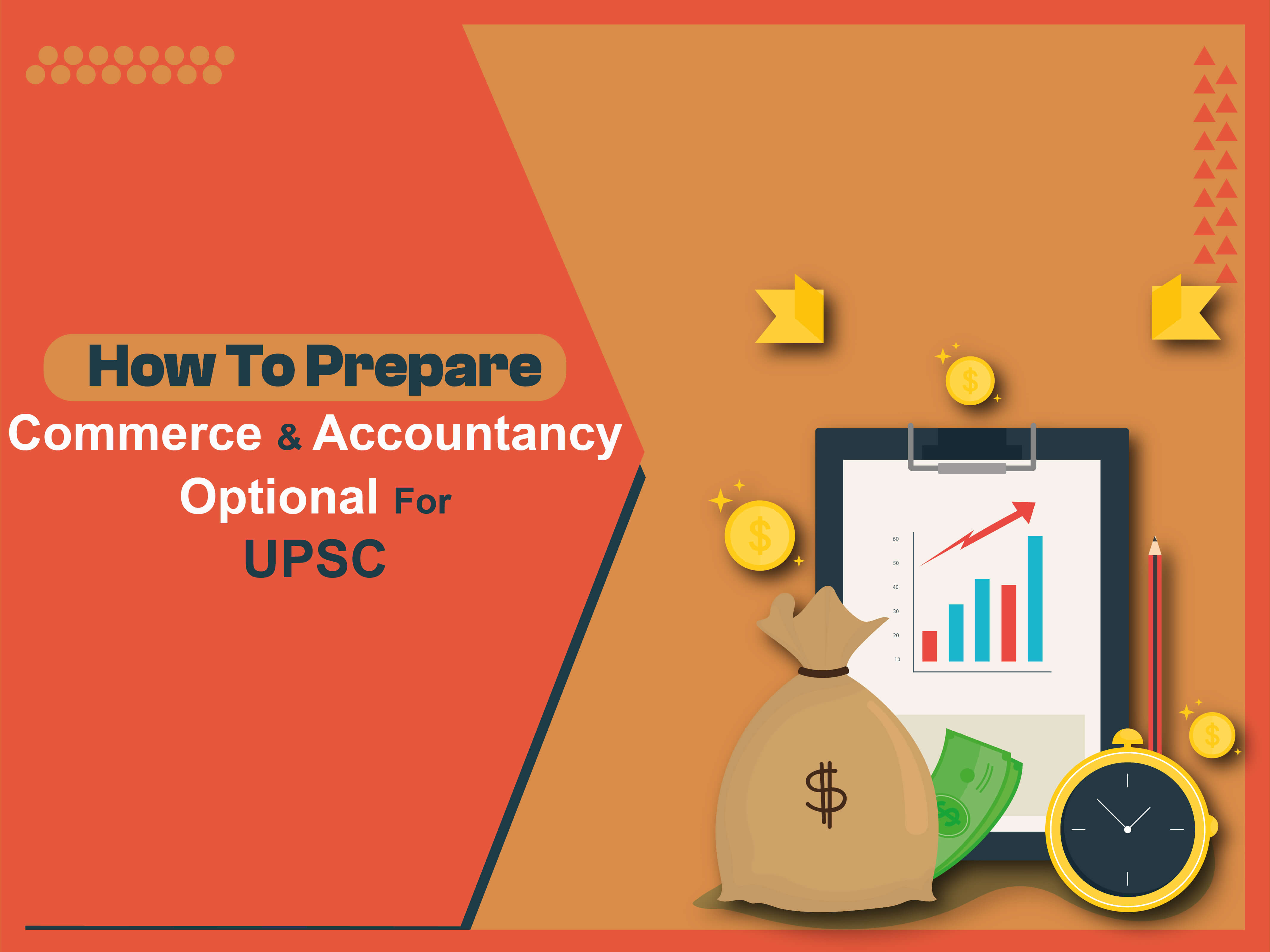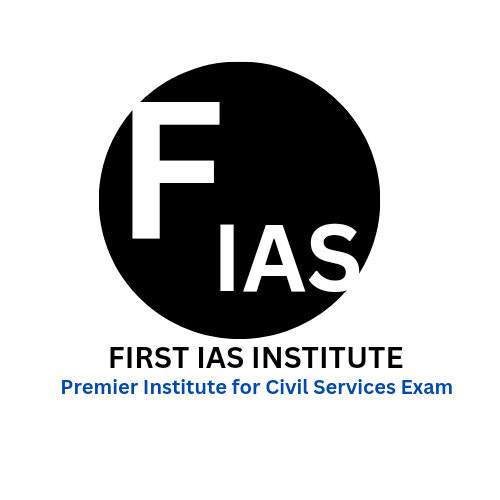
How to Prepare Commerce & Accountancy Optional for UPSC
The commerce and accountancy optional paper is a popular choice amongst aspirants. This paper requires specific knowledge in the field of commerce. So, the aspirants with a higher education in commerce are recommended and inclined to take Commerce and Accountancy Optional. You must be well-versed in the concepts and formulas of commerce and accountancy to ace the exam. This optional is popular amongst aspirants of commerce and accountancy background as they have an advantage. Other aspirants do take up the optional based on their interest and their capabilities. You must be aware of what the subject entails before you commit yourself to this option.
The Advantages and Disadvantages of Commerce and Accountancy Optional
Let’s discuss the advantages and disadvantages of commerce and accountancy optional. As a result, we can plan our preparation better.
The Advantages of Commerce and Accountancy
- Interesting Subject: For all aspirants who have a love of financial institutes and how they work, this optional is for them. This optional paper will force you to think and look at the economy in a different manner.
- Technical Subject: This optional is technical in nature. Your understanding of the concepts and formulas, along with the numericals asked in the paper, make it a very niche subject.
- Scoring Subject: You have to solve multiple numericals in the paper. This will help you score more marks as the subjective nature and opinion-based answers are less.
The Disadvantages of Commerce and Accountancy
- Vast Syllabus: The syllabus of this subject is vast and lengthy. You need a lot of dedication and competence to finish the portion. It will take roughly five to six months for an aspirant with a background in commerce.
- Limited Study Material: The vast syllabus calls for a lot of reading of the subject matter. However, the problem is that when you start reading for the paper, you have to collect the material from different sources and combine it to make sense.
- Unpredictability: In this optional paper, you have to solve numericals. The UPSC has been very unpredictable in the level of the numericals.

Syllabus For Commerce and Accountancy Optional Paper
The syllabus for commerce and accountancy optional is divided into two parts. Each part has a paper based on it. We shall discuss the syllabus paper-wise. Just remember that this optional paper will be comparatively easy for aspirants with a background in commerce and accountancy. For aspirants with no background in commerce and accountancy, it comes to your interest and overall capabilities. The detailed syllabus is listed below.
Syllabus of Paper 1
- Accounting, Taxation, & Auditing
- Financial Accounting
- Cost Accounting
- Taxation
- Auditing
- Financial Management, Financial Institutions, and Markets
Syllabus of Paper 2
- Organisation Theory
- Organisation Behaviour
- Human Resource Management
- Industrial Relations
What to Expect in the Optional Commerce and Accountancy Paper?
We know that the optional commerce and accountancy paper consists of two papers: Paper 1 and Paper 2. Both papers have different syllabi. Formulate a plan of action once you know what they are asking in the papers.
-
Paper 1
Paper 1 is a direct paper with a mix of theory-based questions and numericals. These questions are straightforward. It is easy to score above 200 if you have practised enough numericals and theory-based answers. There is nothing to be worried about. They have started adding some questions related to current affairs. However, most of the syllabus for this paper is static.
-
Paper 2
Paper 2 is theoretical. You have to write answers, and you need good conceptual clarity for the same. Level up your answers by adding relevant examples from current affairs. Use diagrams to add some flair to your answers. This paper is a good mix of static content and dynamic content. It is a little harder to score in this subject as it is a theoretical paper.
Now that you know what to expect, let us discuss some non-negotiable tips you must follow to play to your strengths and prepare well!
Tips For General Prep
These are tips for your overall preparation. Do not forget these pointers. They will be helpful to you. Follow these to prepare thoroughly.
- Your priority while preparing should be to understand the concepts effectively. This will help you to familiarise yourself with the subject and increase your accuracy. You must start with the easy topics first and then move on to the advanced topics. This way, you strengthen the foundation of the subject and build the connection between different topics.
- Utilise your resources well. Read books relevant to your paper. Utilise your coaching material and find more material online to understand the concepts. The more you read and understand, the easier it will get.
- Utilise your resources well. Read books relevant to your paper. Utilise your coaching material and find more material online to understand the concepts. The more you read and understand, the easier it will get.
- As an aspirant, you must always evaluate any topic using the PESTLE method. The PESTLE analysis basically forces you to look at any event or topic from Political, Economic, Sociological, Technological, Legal, and Environmental perspectives.
- Try to include as much government-backed survey data as you can. This will enrich your answer and portray you as a model candidate.
- The best way to prepare is to solve a lot of question papers. You will get many previous year’s UPSC Mains question papers. Practice in a time-bound, exam-like simulation to achieve your desired score.
We sincerely believe these tips will be helpful to you.
Books You Can Refer To For Commerce and Accountancy Optional
Any good book on commerce and accountancy can provide you with properly articulated information from the exam perspective. However, finding good books is a challenge. There are many books out there that claim to be the ‘best book for commerce and accountancy.’ There are two tables mentioned below. Each table represents a list of books for each paper. This way, we have streamlined your preparation.
Books for Paper 1
| Book | Author |
| Fundamentals of Corporate Accounting | J.R. Monga |
| Accounting Standards | ICAI Publications |
| Fundamentals of Management Accounting | Antony & Welsch |
| Cost Accounting; Theory & Problems | Maheshwari & Mittal |
| Student’s Guide to Auditing | Aruna Jha (Taxmann Publishers) |
| Student’s Guide to Income Tax | V.K. Singhania |
| Systematic Approach to Income Tax | Girish Ahuja |
| Financial Management | R.P.Rustagi |
| Financial Management; Text & Problems | Khan & Jain |
| Indian Financial System | M.Y.Khan |
| Financial Institutions & Markets | L.M. Bhole |
Books For Paper 2
| Books | Author |
| Organisation Theory & Behaviour | B.P Singh & T.N. Chabra |
| Organisational Behaviour | Stephen P. Robbins |
| Organisational Behaviour | Fred Luthans |
| Management of Organisational Behaviour | Paul Hersey & Ken Blanchard |
| Human Resource Management | C.B. Gupta |
| Human Resource and Personnel Management | K. Ashwathapa |
| Human Resource Management | VSP Rao |
| Industrial Relations in Indian Enterprises | R.S. Dwivedi |
| Dynamics of Indian Relations | C.B. Mamoria, Satish Mamoria & S.V. Gankar |
| Industrial Relations | T.N. Chhabra & R.K.Suri |
These books will help you focus on your preparation. Read them thoroughly. Make sure you have taken notes. Remember to revise the notes regularly. Solve practice questions as much as you can.
Conclusion
You need to put in a lot of time and dedication for the commerce and accountancy optional paper. As scoring as the subject is, the technicality of the subject requires you to put in a tremendous amount of effort to clear the paper with flying colours. All the details have been mentioned. Make sure to prepare well and diligently follow the steps mentioned above. They will give you the confidence to score well. Your persistent dedication will define your results. Make yourself proud of your efforts. All the best for your preparation.







 firstiasofficial@gmail.com
firstiasofficial@gmail.com